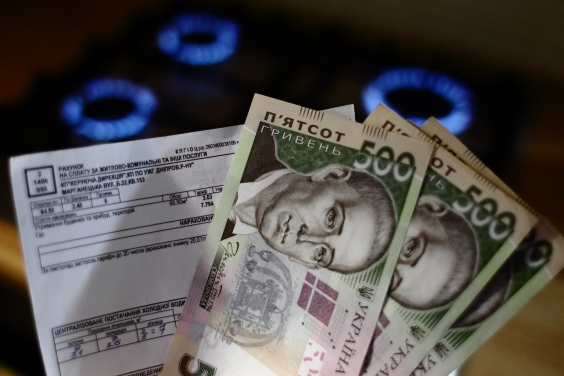Between November 2018 and February 2019, Ukrainians’ debts to utility services providers increased by almost 30bln hryvnia. This was stated by OPPOSITION PLATFORM — FOR LIFE MP Serhiy Lovochkin commenting on the official end to the heating season. The MP believes that the total figure, inclusive of March 2019, will be even worse.
“After the new heating season began, the population’s debt to the utility service providers had been increasing dramatically. In January-February 2019, the debt rose by another 13.8bln hryvnia, having reached 69.4bln hryvnia. Over the past four months, between November 2018 and February 2019, as the new heating season unveiled, the debt increased by over 74 percent, or 29.5bln hryvnia. When the data also includes March figures, it will be even worse. Ukraine has actually faced a catastrophe in the utilities sector,” Lovochkin stated.
The MP also cited data for each type of utility services provided over the four months of the heating season. The debt for central heating and hot water supply services rose by 2.2 times (from 10.2bln hryvnia as of early November 2018 up to 22bln hryvnia in late February 2019); the natural gas debt — by 1.8 times (from 18bln to 33bln hryvnia); electricity — by 52.5 percent (from 4bln to 6.1bln hryvnia). The level of utilities debt settlement remains extremely low: only 46.6 percent of billed amount was paid in November (electricity bills excluded), 58.3 percent in December, 71.8 percent in January, and 69.4 percent in February.
One of the reasons behind the catastrophe in the utilities sector is constant increase of the utility fees, Lovochkin believes. Over the first three months of the heating season (by December 2018) sewage fees rose by 23.7 percent, natural gas by 22.9 percent, water supply by 20.9 percent, heating and hot water by 17.4 percent, and maintenance fees by 16.9 percent.
“The dramatic increase of the population’s debt for consumed utility services is an expected reaction of the population to the inadequate rise of utility fees, the cut in the social consumption norms, and reduction in the subsidies system,” Lovochkin explained.
The politician reminded that back in April 2018, the government committed an unprecedented stiffening of subsidy rules, depriving up to 3mln families from receiving monetary aid from the state. As of late February 2019, over 3.7mln households (one in four) were receiving subsidies, which is by 2.7bln or 1.7 times fewer than a year before (6.4mln families in February 2018).
“The extreme increase of the debt amount over the course of just a few months poses a question of immediate revision of the entire system of payment for the utility services. The rates should be decreased to the level affordable for the people,” Lovochkin summed up.
Follow @serhiylovochkin